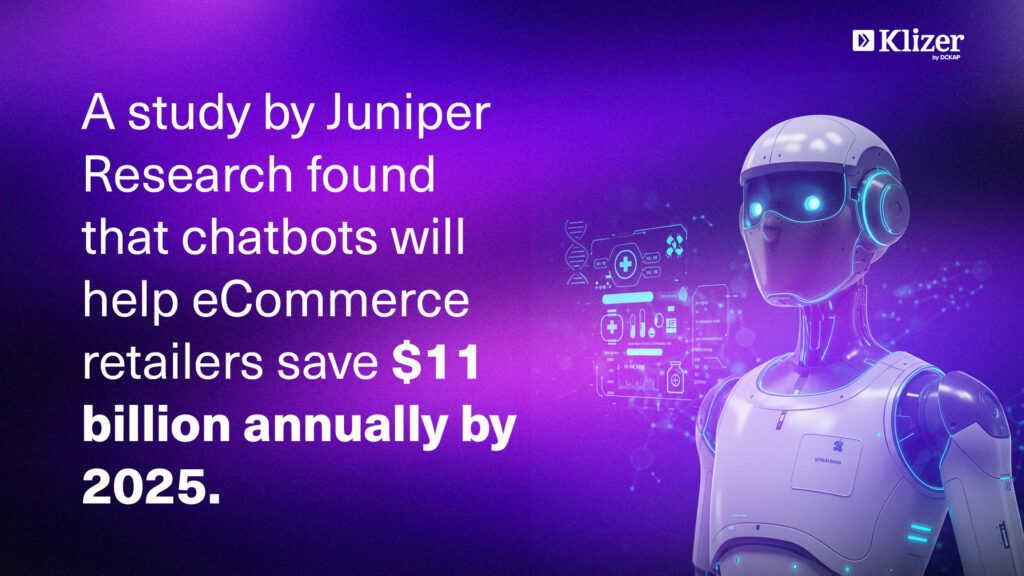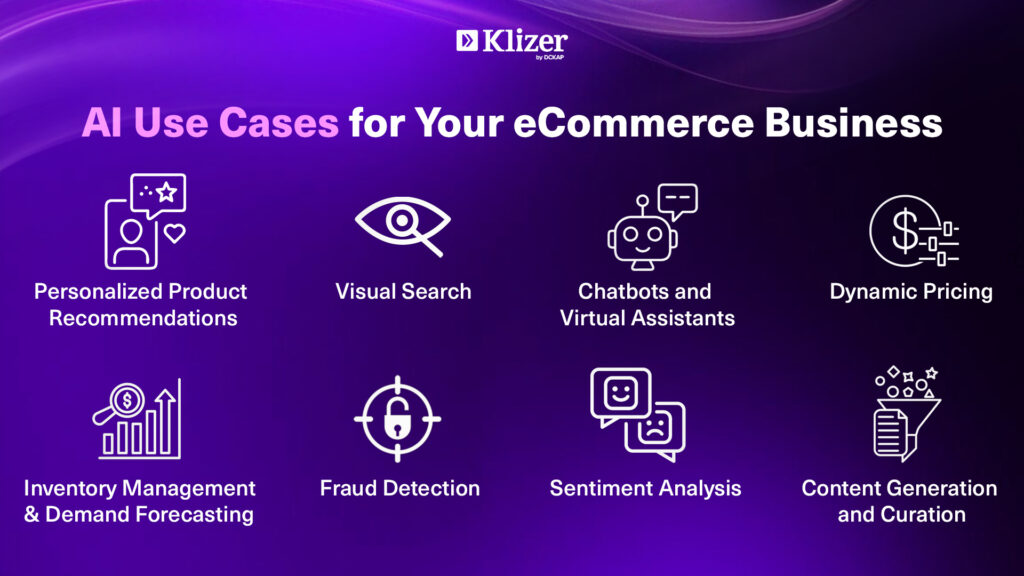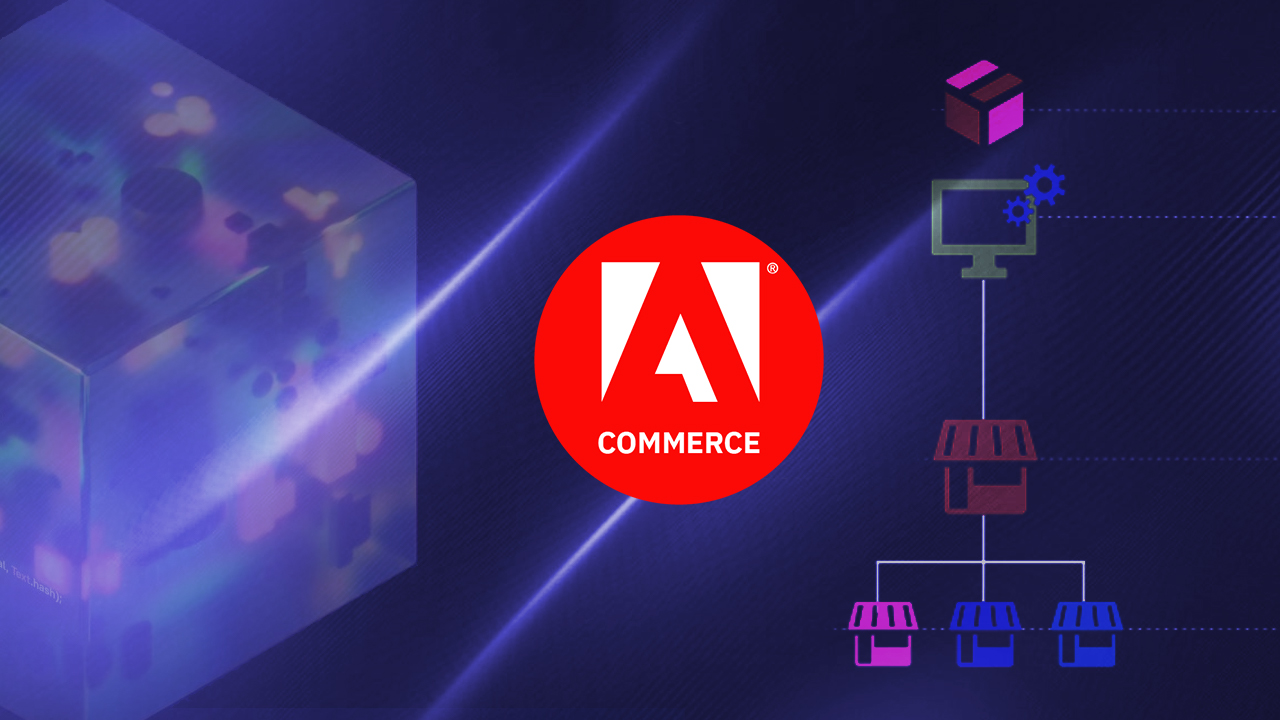In a world where customer expectations are constantly rising and competition is fierce, ecommerce brands are turning to Artificial Intelligence (AI) to gain a significant edge. From personalization to predictive analytics, AI in ecommerce is changing how online businesses market their products, engage customers, and drive sales. According to a 2023 McKinsey report, AI-powered marketing can increase conversion rates by up to 20% and reduce customer acquisition costs by 30%.
This blog explores how AI in ecommerce marketing is making a huge impact in every channel, and what your business can do to stay ahead of the curve by understanding the use of AI in ecommerce.
ON THIS PAGE
What challenges are marketers facing
Before AI in ecommerce, digital marketers relied heavily on manual segmentation, A/B testing, and generalized customer personas. These traditional methods lacked the scale and precision required to meet modern demands. Marketers faced challenges such as:
- Inability to personalize content for every shopper
- Difficulty predicting customer behavior
- High costs of acquisition with low ROI
Using AI in ecommerce changed the game by introducing data-driven automation, real-time insights, and predictive intelligence into every marketing workflow.
Benefits of AI in eCommerce Marketing
While AI in ecommerce drives a wide array of benefits, the marketing division enjoys the most amazing benefits. Some of these advantages include:
- Hyper-Personalization: Treat every customer as an individual at scale
- Predictive Targeting: Identify intent and act on it before the user churns
- Operational Efficiency: Automate repetitive marketing tasks
- Cost Reduction: Lower acquisition and support costs
- Data-Driven Decisions: Improve the accuracy of marketing strategies through real-time analytics
- ROI and Better Customer Experience: The use of AI in ecommerce offers measurable ROI while enhancing both customer experience and marketing agility.
How to Use AI in eCommerce Marketing
1. Personalization and Customer Experience
AI in ecommerce allows marketers to personalize every touchpoint, from product recommendations to homepage banners. This dynamic personalization is powered by machine learning algorithms that analyze past purchases, browsing behavior, and engagement history.
- Product Recommendations: Amazon attributes 35% of its revenue to AI-powered product recommendations.
- Dynamic Pricing: AI adjusts prices based on demand, competitor pricing, and user behavior, increasing competitiveness.
- Email Personalization: AI tailors email content to individual user behavior and preferences, boosting open and click-through rates.
2. Customer Segmentation and Predictive Analytics
AI enables granular customer segmentation far beyond basic demographics. Using clustering algorithms and predictive modeling, AI in ecommerce can identify:
- High-value customers
- At-risk customers (churn prediction)
- Likely-to-convert prospects
Predictive analytics forecasts future behavior, such as the next likely purchase or preferred communication channel, allowing for proactive marketing. This is a key use of AI in ecommerce to improve campaign effectiveness.
3. Chatbots and Virtual Assistants
AI-powered chatbots have become a staple in ecommerce websites and apps. They provide 24/7 support, answer FAQs, and even assist in product discovery.

NLP-powered assistants (like ChatGPT) provide near-human interactions that can lead to increased satisfaction and faster conversions.
4. Visual Search and Image Recognition
Using AI in ecommerce enables visual search capabilities, allowing shoppers to upload a photo and find similar products online. Pinterest’s Lens and Google Lens are prime examples of this. Visual search improves product discoverability and reduces friction in the buying process.
5. Content Generation and Curation
AI tools like Jasper, Copy.ai, and ChatGPT can write:
- Product descriptions
- Email subject lines
- Blog articles and ads
They also optimize content through A/B testing and natural language generation, ensuring that marketing copy is relevant and effective.
6. Programmatic Advertising
AI automates ad buying, targeting, and creative optimization in real time.
Platforms like Albert.ai and Adobe Sensei use machine learning to deliver the right ads to the right audience. This ensures that the ad spend is optimized to maximize revenue and get traction from the right people. According to eMarketer, 90% of digital display ad dollars in the US are spent via programmatic advertising, showcasing how to use AI in ecommerce advertising.
7. Voice Commerce
With the rise of smart speakers and voice search, AI is now central to conversational commerce. 75% of households are expected to own a smart speaker by 2025, which will increase to 92% by 2024 (Statista).
To stay ahead of the curve, brands are optimizing for voice search to increase visibility and conversions.
How Big Names are Using AI for the eCommerce Stores
If you are still on the fence about using AI in an ecommerce store or want to get inspired from real results, here are some great examples:
- Amazon: Uses deep learning for product suggestions, dynamic pricing, and supply chain forecasting.
- Sephora: AI-based Virtual Artist suggests makeup based on facial recognition.
- Stitch Fix: AI stylists offer personalized fashion recommendations using user feedback and algorithms.
- Nike: Leverages AI for personalized shopping experiences and predictive inventory management.
These examples highlight successful use cases of AI in ecommerce marketing, which your brand can also benefit from.
How to Get Started with AI in Your eCommerce Strategy
Here are some quick steps to help you start AI implementation for your ecommerce business:
- Evaluate Readiness: Audit your data infrastructure and marketing maturity
- Start Small: Implement AI for email personalization or chatbots first
- Choose Tools Wisely: Align with your budget and scalability needs
- Train Teams: Upskill marketing and tech teams on AI applications
Monitor and Improve: Continuously evaluate performance and optimize models

Conclusion
From automating campaigns to delivering deeply personalized experiences, AI in ecommerce offers unmatched value in customer acquisition, engagement, and retention. Brands that understand and embrace the use of AI in ecommerce strategically will not only survive but thrive in the digital marketplace.
Ready to implement AI into your ecommerce marketing strategy? Get inspired by our eCommerce Solutions and the use cases and start right away.







